
The Pterophoridae or plume moths are a family of Lepidoptera with unusually modified wings, giving them the shape of a narrow winged airplane. Though they belong to the Apoditrysia like the larger moths and the butterflies, unlike these they are tiny and were formerly included among the assemblage called "microlepidoptera".
Exelastis montischristi is a species of moth in the genus Exelastis known from Hispaniola, Ecuador, Grenada, Jamaica, Martinique, the Virgin Islands, Florida and Texas. It has also been recorded from Tanzania.
Michaelophorus bahiaensis is a species of moth in the genus Michaelophorus known from Brazil. Moths of this species take flight in November and have a wingspan of about 9 millimetres (0.35 in). The specific name is derived from the state of Bahia, whence the species is known.
Michaelophorus shafferi is a species of moth in the genus Michaelophorus known from Brazil. Moths of this species take flight in April and have a wingspan of about 9 millimetres (0.35 in).
Michaelophorus hodgesi is a species of moth in the genus Michaelophorus known from Puerto Rico. Moths of this species take flight in May and have a wingspan of approximately 10 millimetres (0.39 in).
Michaelophorus margaritae is a species of moth in the genus Michaelophorus known from Ecuador. It takes flight in May and has a wingspan of approximately 9–11 millimetres (0.35–0.43 in). The specific name refers to Margarita Pelz, the wife of the species' collector.
Michaelophorus indentatus is a species of moth in the genus Michaelophorus known from Belize, Brazil, Mexico, and Panama. Moths of this species take flight in April and in September–November and have a wingspan of approximately 12 millimetres (0.47 in).
Michaelophorus dentiger is a species of moth in the genus Michaelophorus known from Argentina, Brazil, British Guyana, Cuba, Curaçao, Honduras, Ecuador, Nicaragua, Paraguay, and Venezuela. The host plant for the species is suspected to be Hippomane mancinella. Moths of this species are in flight all year round and have a wingspan of approximately 13–15 millimetres (0.51–0.59 in).
Michaelophorus nubilus, the cacao plume moth, is a species of moth in the genus Michaelophorus known from Venezuela, Peru, Ecuador, Brazil, Colombia, Honduras, Costa Rica, and Trinidad. Moths of this species take flight in January, February, and July and have a wingspan of approximately 12–15 millimetres (0.47–0.59 in).
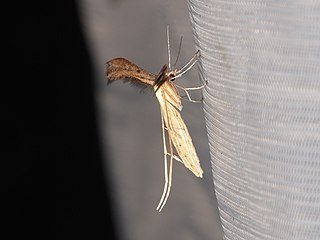
Pterophorinae is a subfamily of moths in the family Pterophoridae.

Singularia alternaria is a moth of the family Pterophoridae. It is found in Argentina, Chile and Ecuador.

Singularia solisi is a moth of the family Pterophoridae. It is found in El Salvador.
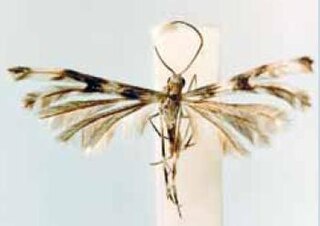
Singularia venedictoffi is a moth of the family Pterophoridae. It is found in Ecuador.

Adaina beckeri is a moth of the family Pterophoridae. It is found in Costa Rica and Belize.
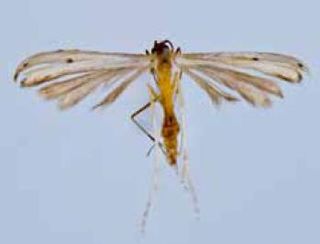
Adaina hodias is a moth of the family Pterophoridae. It is found in Brazil, Costa Rica, Venezuela (Mérida), Ecuador and Mexico.

Adaina bernardi is a moth of the family Pterophoridae. It is found in Costa Rica and Mexico.

Adaina planaltina is a moth of the family Pterophoridae. It is found in the Federal District of Brazil.
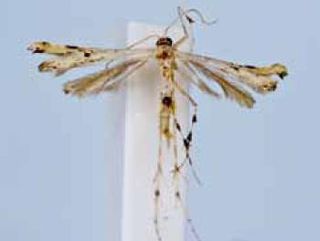
Adaina parainvida is a moth of the family Pterophoridae. It is found in Costa Rica and on Jamaica.
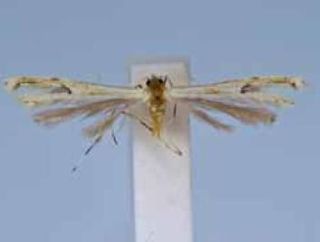
Adaina costarica is a moth of the family Pterophoridae. It is found in Costa Rica.

Adaina excreta is a moth of the family Pterophoridae. It is found in Peru (Carabaya), Argentina and Ecuador.











